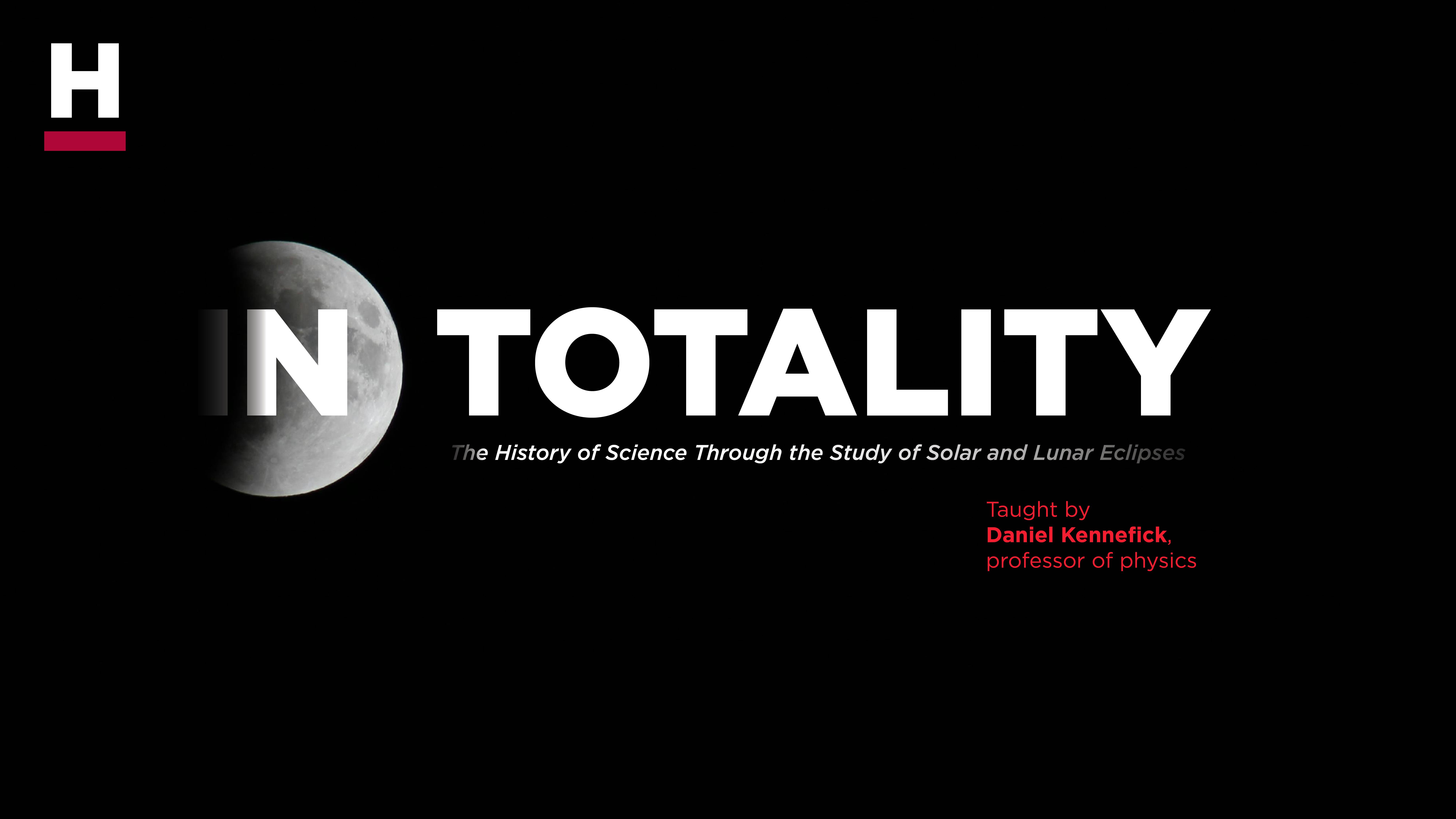In Totality

In Totality: The History of Science Through the Study of Solar and Lunar Eclipses
HNRS 401H3-001
Daniel Kennefick
Fall 2025
MWF 9:40-10:30 a.m.
GEAR 129
Course Application due March 17, 2025 at 8 a.m.
Apply for Honors College Courses
Millions of observers across America, and Arkansas, knew in advance the precise time of totality of the eclipse of April 8, 2024. Yet most were still uncertain, with hours to go, whether they would be able to see the eclipse, due to doubts about the weather. Why can we predict one, and not the other? What does it tell us about the history of science that some natural phenomena are predictable and others are not. Thales of Miletus is often called the first scientist and some have called May 28th, 585 BC the birthday of science, because a total solar eclipse on that date was supposedly predicted in advance by Thales. We know now that Thales could not have predicted the path of totality though it is possible he might have predicted the right day. In this course we will follow the entire story of how astronomers perfected the science of eclipse prediction, even while other natural phenomena have stubbornly defied scientific prognostication. We will examine twelve historical solar eclipses (and four lunar eclipses) in detail, beginning with Thales’ eclipse and ending with the “Einstein eclipse” of 1919. Each eclipse will form a chapter in the development of astronomy specifically and the advance of science more generally. Eclipses have often been used to improve our understanding of other areas of science, including physics, chemistry, biology, geography, meteorology and computing. The story will bring in many famous names besides those of Thales and Einstein, including Ptolemy, Alexander the Great, Hipparchus, Columbus, Edmond Halley, Johannes Kepler, Benjamin Franklin, the Native American leader Tecumseh, the King of Siam (the one from the musical), Captain James Cook and many others. It will also illustrate the history of science from the Babylonians all the way to the present day and explain our modern understanding of eclipses and why they are so special and unique to our planet. Total solar eclipses will not be with us forever and we were indeed fortunate to be able to see one so recently. We also know that there will be another one passing through Arkansas in 2045, so plenty of time to plan ahead!
Course Credit:
- All Students: 3 hours of honors credit
- Fulbright College:
- Fulbright Honors Natural Science Colloquium Credit
- Walton College:
- Honors Colloquium credit
- Note: The other three hours of required honors colloquium courses would need to come from Walton.
- Honors Colloquium credit
About Daniel Kennefick
 Daniel Kennefick is a professor of physics at the University of Arkansas. His areas of study include
gravitational waves, spiral structure in disk galaxy and the history of gravitational
physics and astronomy. He is the author of "No Shadow of a Doubt" about the eclipse
expeditions of 1919, "Traveling at the Speed of Thought" about the history of gravitational
waves and a co-author of "An Einstein Encyclopedia."
Daniel Kennefick is a professor of physics at the University of Arkansas. His areas of study include
gravitational waves, spiral structure in disk galaxy and the history of gravitational
physics and astronomy. He is the author of "No Shadow of a Doubt" about the eclipse
expeditions of 1919, "Traveling at the Speed of Thought" about the history of gravitational
waves and a co-author of "An Einstein Encyclopedia."